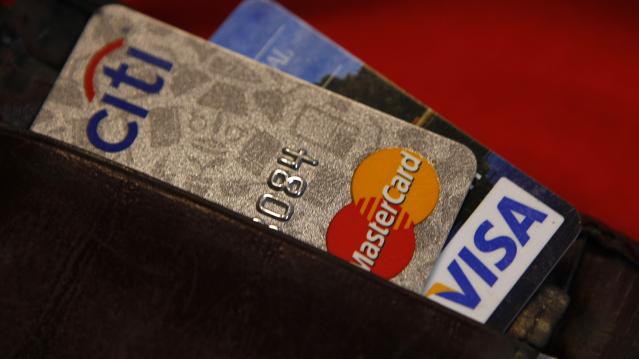Why That Annoying Fraud Alert Is Still a Good Thing

As credit card fraud has skyrocketed, issuers suspecting suspicious activity have become increasingly vigilant – sometime maybe too vigilant.
In many cases, fraud alerts are preventing consumers from making legitimate purchases. More than two-thirds of Americans who have received a fraudulent activity alert from their credit or debit card issuers have received at least one that’s inaccurate, according to a new study from CreditCards.com.
Still, card issuers have good reason to be cautious. This week, credit card scoring and analytics firm FICO said that the number of attacks on debit cards used at ATMs hit the highest level in 20 years during the first quarter of 2014
Related: How to Beat Credit and Debit Card ID Thieves
Americans remain extremely concerned about their personal data when shopping in stores, so many accept the inaccurate fraud alerts as a necessary hassle. “Most consumers we have spoken with seem to be okay with this trend,” CreditCards.com senior industry analyst Matt Schulz said in a statement.
You can avoid having your card blocked from legitimate purchases by calling your issuer or visiting their Web site to let them know you’ll be traveling, since purchases made from a new geographic area often send a red flag to card companies. Some issuers also offer text message alerts, so you can quickly and easily unblock a card for your transactions.
If you think you’ve been a victim of fraud (or if your cards have been physically lost or stolen), call your issuer immediately – most have 24/7 call centers dedicated to fraud.
Tweet of the Day: The Black Hole of Big Pharma

Billionaire John D. Arnold, a former energy trader and hedge fund manager turned philanthropist with a focus on health care, says Big Pharma appears to have a powerful hold on members of Congress.
Arnold pointed out that PhRMA, the main pharmaceutical industry lobbying group, had revenues of $459 million in 2018, and that total lobbying on behalf of the sector probably came to about $1 billion last year. “I guess $1 bil each year is an intractable force in our political system,” he concluded.
Warren’s Taxes Could Add Up to More Than 100%

The Wall Street Journal’s Richard Rubin says Elizabeth Warren’s proposed taxes could claim more than 100% of income for some wealthy investors. Here’s an example Rubin discussed Friday:
“Consider a billionaire with a $1,000 investment who earns a 6% return, or $60, received as a capital gain, dividend or interest. If all of Ms. Warren’s taxes are implemented, he could owe 58.2% of that, or $35 in federal tax. Plus, his entire investment would incur a 6% wealth tax, i.e., at least $60. The result: taxes as high as $95 on income of $60 for a combined tax rate of 158%.”
In Rubin’s back-of-the-envelope analysis, an investor worth $2 billion would need to achieve a return of more than 10% in order to see any net gain after taxes. Rubin notes that actual tax bills would likely vary considerably depending on things like location, rates of return, and as-yet-undefined policy details. But tax rates exceeding 100% would not be unusual, especially for billionaires.
Biden Proposes $1.3 Trillion Infrastructure Plan

Joe Biden on Thursday put out a $1.3 trillion infrastructure proposal. The 10-year “Plan to Invest in Middle Class Competitiveness” calls for investments to revitalize the nation’s roads, highways and bridges, speed the adoption of electric vehicles, launch a “second great railroad revolution” and make U.S. airports the best in the world.
“The infrastructure plan Joe Biden released Thursday morning is heavy on high-speed rail, transit, biking and other items that Barack Obama championed during his presidency — along with a complete lack of specifics on how he plans to pay for it all,” Politico’s Tanya Snyder wrote. Biden’s campaign site says that every cent of the $1.3 trillion would be paid for by reversing the 2017 corporate tax cuts, closing tax loopholes, cracking down on tax evasion and ending fossil-fuel subsidies.
Read more about Biden’s plan at Politico.
Number of the Day: 18 Million

There were 18 million military veterans in the United States in 2018, according to the Census Bureau. That figure includes 485,000 World War II vets, 1.3 million who served in the Korean War, 6.4 million from the Vietnam War era, 3.8 million from the first Gulf War and another 3.8 million since 9/11. We join with the rest of the country today in thanking them for their service.
Chart of the Day: Dem Candidates Face Their Own Tax Plans

Democratic presidential candidates are proposing a variety of new taxes to pay for their preferred social programs. Bloomberg’s Laura Davison and Misyrlena Egkolfopoulou took a look at how the top four candidates would fare under their own tax proposals.


